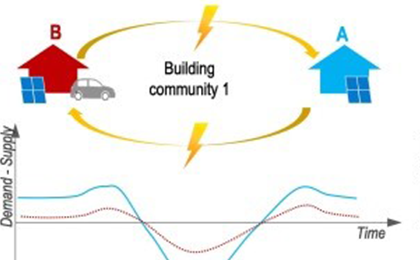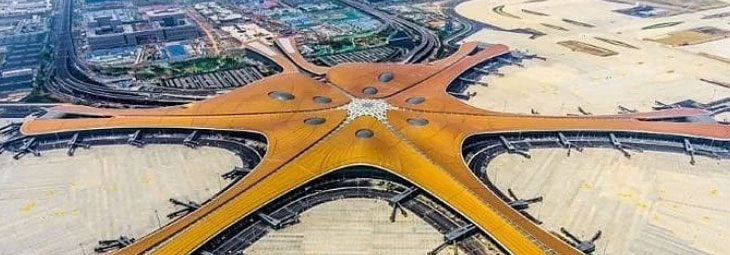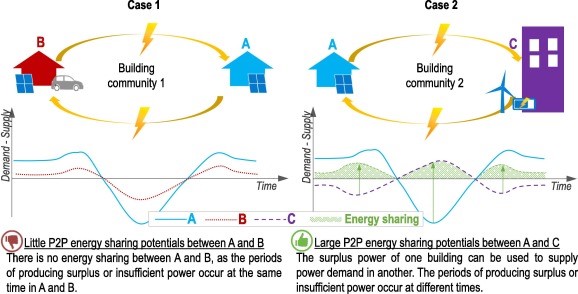


Energy sharing refers to the collaborative interactions among entities responsible for energy production, storage, and consumption within a defined region, aimed at optimizing energy resource allocation and enhancing utilization efficiency. At its core, this concept involves leveraging diverse distributed renewable energy systems, integrating energy storage facilities and smart grid technologies to effectively coordinate energy supply and demand among various stakeholders, thus improving the overall energy efficiency and resilience of urban systems, and playing a crucial role in driving low-carbon transitions in cities. In urban planning, it is necessary to establish planning frameworks based on microgrids or community energy systems to facilitate complementary energy exchanges among different buildings and users. Additionally, urban-scale energy-sharing scenarios should be simulated and optimized to support planning decisions, thereby maximizing the overall energy performance of cities.

Source: https://www.sciencedirect.com/science/article/pii/S0306261922013010
Edited and translated by Ma Chenshuo